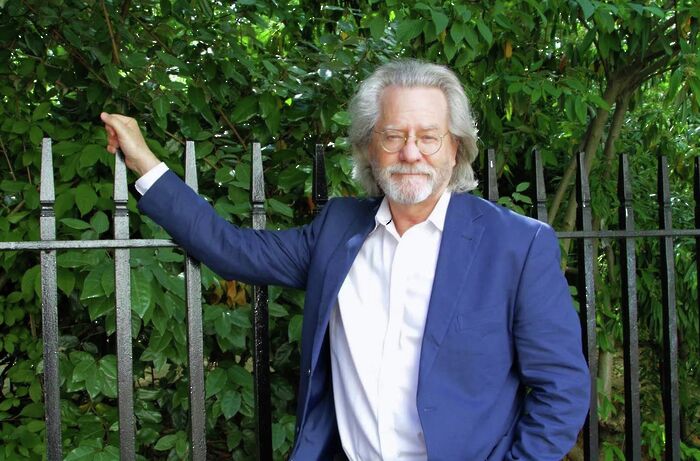Helen Thompson: Academics don’t have some kind of privilege in democratic politics
Cambridge-based political economist Professor Helen Thompson sits down with Jess Ma to discuss the role of academics in public discussion in an age of democratic upheaval

Apart from academic journals and books, it is easy to find Professor Helen Thompson’s name on blog posts and magazine bylines, and of course on the Talking Politics podcast, giving timely commentaries on the most pressing issues of the day, whether Brexit, Tory leadership elections or EU relations. However her knowledge in the field goes beyond theories and hindsight: you can see it in the flair and academic attention to detail which she brings to public discourse.
Sitting down with Professor Thompson in her office amidst portraits of political thinkers and books on economics, Varsity discussed the role of academics in the public sphere, the dangers of holding onto the academic hat, and how recent democratic tensions have affected public discussion.
Professor Thompson is frank about her interactions with the media, chuckling that she fundamentally writes those magazine commentaries “because [she] was asked”. Nonetheless, she finds that she enjoys writing them: “I think it’s a way of trying to get out of the sometimes limiting academic discourse of politics. You can get caught up in the theoretical language – it can be a bit divorced from real world politics”. To her, writing timely commentary pieces is an alternative way to pursue her academic interests. “I’ve sort of been able to say something that might be more pertinent to the political situation in real time, than if you were writing about it in an academic sense several years after it has happened.”
Thompson is certainly aware of her social responsibility as an academic. “I definitely think that academics do have some responsibility, in a subject like politics, to engage in the public sphere,” though she recognises that different subjects entail different forms of public engagement. Thompson also recognises that “it is important at the same time that academics recognise that they can still have their positions challenged”. She argues that the identity of an academic should not be “some sort of label” as an expert which “in some sense insulates you from people telling you that you’ve got it wrong, including people who may well not come at it with all the knowledge you hope an academic would bring to the issue”.
The notion of the humble academic is, apparently, something of a novelty in democratic politics. Professor Thompson identifies that a key characteristic of representative democracies for a long time has been that “somehow there is more value to be attached to [an] educated person’s opinions than it to [a] non-educated person’s opinions”, pointing out that individuals affiliated with a university could get two votes, in both a university constituency and their home constituency, until 1948. She strongly objects to this: “I’m quite strongly of the view that academics don’t have some privilege in democratic politics.” Professor Thompson continues that this notion “is just completely at odds with what democratic politics is in this time and place.”
"It is important that at the same time academics recognise that they can still have their positions challenged"
The difference between academics discussing politics in their comfort zone and participating in the public sphere is a “rough and tumble aspect”, Professor Thompson points out. Contested political issues academics have been asked to contribute to, with Brexit as a prominent example, cannot be solved by the linear approach offered by academic knowledge: “simply saying ‘if you know this, you will think that’”.
“It’s not that knowledge hasn’t got [a] part to play but we’ve got to be clear about the question of what’s at stake.” In the public sphere, making an argument can be a political act with its own implications, not to mention the endless tension between clashing values and judgements, and the muddled landscape resulting from this. Knowledge may be able to comb the loose ends of the discourse, but public discussion is an entirely different landscape from detached academic hindsight. There is a need to get to the crux of the conflict amidst torrents of different views and entangled judgements in the “rough and tumble” real world of politics, it seems. “Even if you are trying to engage in a well-informed way, there is going to be some politics around that too”.
With the complexity present in public political discourse, Professor Thompson cautions that an academic’s status can be misleading. “If you try and participate in the public sphere as an academic and think that you will be provided with some insulation because you are an academic and you are supposed to know more than other people, then it’s not like that.” Perhaps there is a need to rethink the impact of academics’ contribution in public participation, as Professor Thompson continues, “what academic analysis can do is to show how complicated things can be and that is a good thing, but I think that it’s not like academics can provide some resolution on contested political questions.”
Does this illuminate the potential limit of knowledge on real-life political problems? Value choices emerge as the Gordian knot in Professor Thompson’s take. Using the example of whether representative democracy is more important than participatory democracy, Professor Thompson illustrates that in attempting to argue for one over the other, even though valuable novel contributions can be made, one cannot resolve the question of which is better. “Knowledge can end up shaping what you think about it but it doesn’t actually resolve the choice,” Professor Thompson said. “Politics involve choices, and these choices will be contested by different groups and different people [who] can reasonably disagree about what the better choice is, and they can reasonably disagree even if they share the same political end.”
"What academic analysis can do is show how complicated things can be"
For Professor Thompson, both the ends and the means in politics can be contested. Grounding this notion in the recent political climate, Professor Thompson argued that “I think one of the things that has happened in democratic politics in Europe and North America over the last five years has been the realisation that issues many people came to the conclusion had been in some sense depoliticised or no longer contestable, have turned out to be pretty contestable. That is in part why we have the political difficulty in democratic politics we have seen in recent years.”
Differences in approaches to politics manifest itself as an “inescapable tension” of democratic politics, in Professor Thompson’s view. Discourse in the public sphere entails numerous possibilities for different opinions and views, with the fact that “everybody can say some pretty ill-informed things about politics, regardless of who they are.” Since everyone is equal with the democratic vote, “different ways of thinking about what democratic politics is” seems to be an “inescapable tension” in democratic politics. Elaborating with the issue of central bank independence, Professor Thompson points out that democratic politics produces a series of shifts that are “a bit cyclical”, as public opinion shifts away from desiring economic expertise in the running of central banks toward a rejection of the managerial consequences of technical expertise. “I suspect that it’s an ongoing tension that has to be lived with, and that trying to get some balance between the claims so they don't swing too far in each direction is the way to avoid the excess of both positions,” she concluded.
As more and more academics engage with public discourse through various media, perhaps it is worth re-thinking what academics can offer to the murky, fast-paced, and raucous realm of “real world politics” and the field of discourse that comes with it. Knowledge and academic detachment are certainly valuable in shining a light through the whirlwind of ever-updating news and comments, but as Professor Thompson has emphasised throughout the interview, academics are not, and should not be sacrosanct in public participation. Politics is not a problem waiting to be solved by achieving the correct approach, it is perhaps a ball of tangled yarn that rolls on with all its knots, at times leaving a single trail inviting detangling, or swallowing itself entirely - but it will roll on, despite attempts to dismantle it.
 News / Meta opens £12 million lab in Cambridge 11 July 2025
News / Meta opens £12 million lab in Cambridge 11 July 2025 Lifestyle / Reflections on rowing10 July 2025
Lifestyle / Reflections on rowing10 July 2025 News / Write for Varsity this Michaelmas13 July 2025
News / Write for Varsity this Michaelmas13 July 2025 Features / How to catch a coat thief13 July 2025
Features / How to catch a coat thief13 July 2025 News / Cambridge Chancellor hopeful accuses opponent of electoral malpractice 9 July 2025
News / Cambridge Chancellor hopeful accuses opponent of electoral malpractice 9 July 2025











